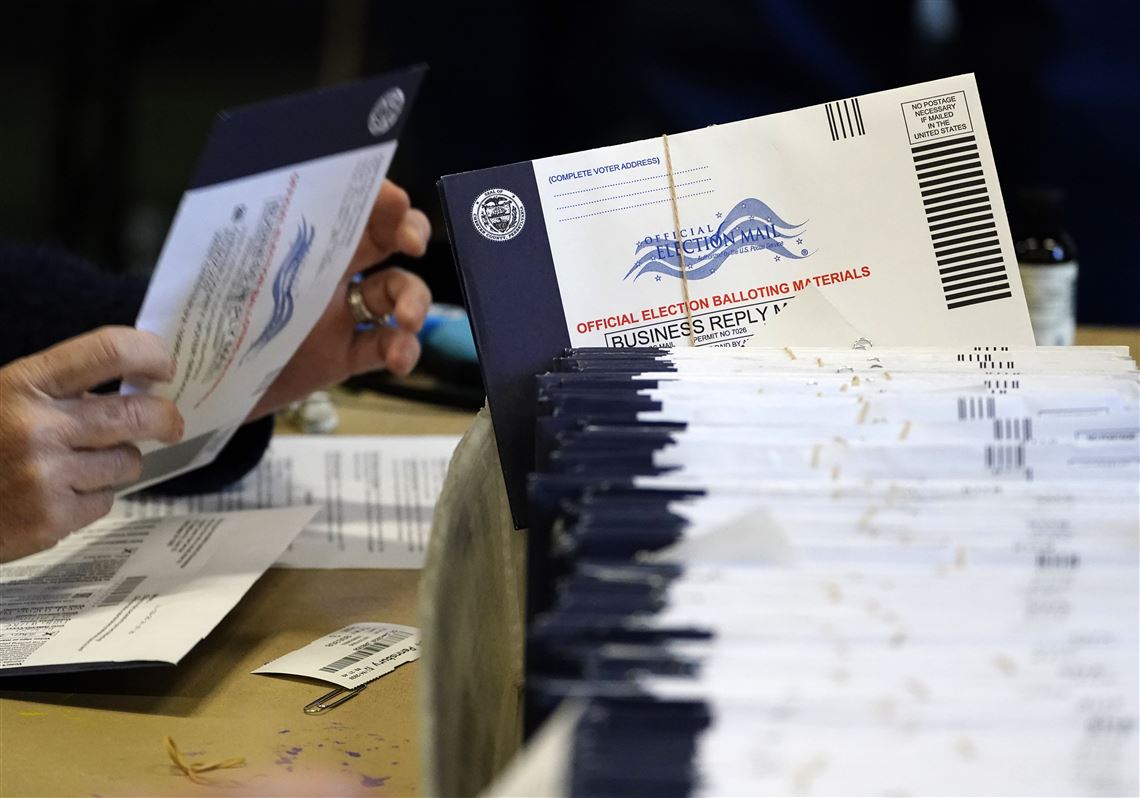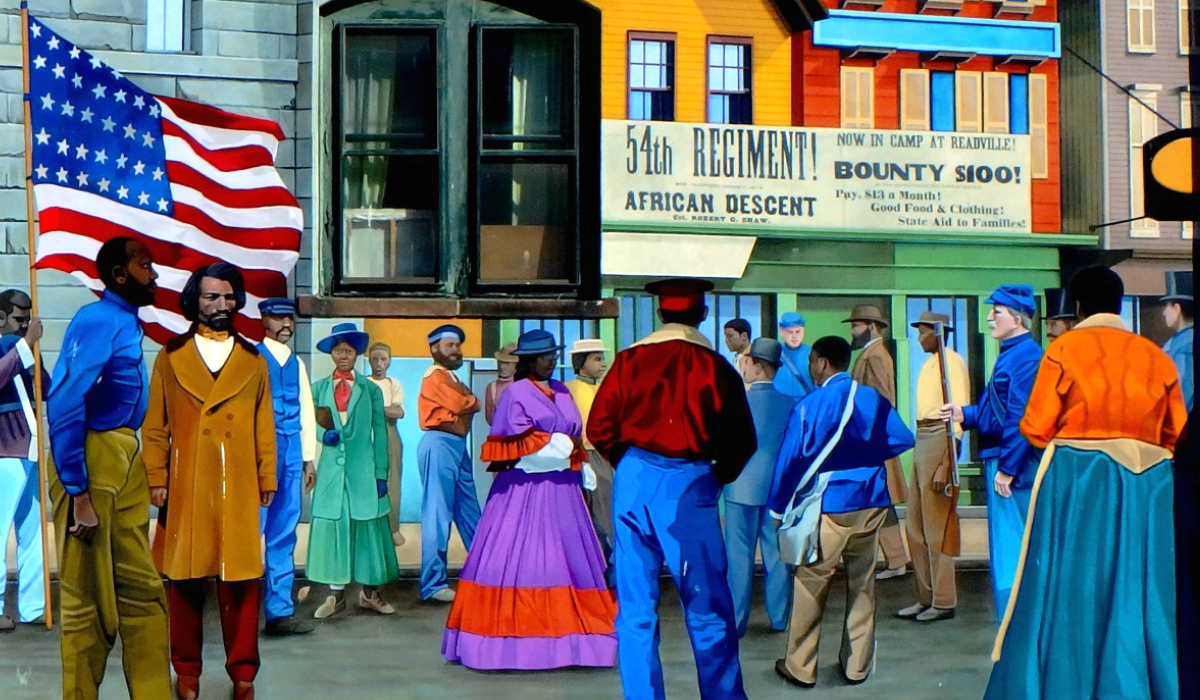- BlackVoter.Org
- Posts
- BLACKVOTER.ORG
BLACKVOTER.ORG

In the first part of the Election 2024 series, Dr. Carol Anderson, a prominent African American Studies professor and author, passionately discusses the critical role of minoritized youth in combating voter suppression in the U.
S. Addressing barriers like strict voter ID laws and inadequate polling locations, she underscores the essential need for civic education.
Emphasizing the significance of grassroots efforts, Anderson shares success stories such as the 2017 Alabama Senate election, which rallied young voters to make their voices heard. With a focus on the implications of recent voting law changes, she calls on marginalized youth to harness their collective power to drive important changes in areas like gun safety and racial equality.
Anderson's insights inspire hope and action, urging young individuals to register, organize, and actively participate in shaping their future.

A contentious debate over noncitizen voting is brewing, foreshadowing potential clashes over the upcoming 2024 election results. As various states grapple with the legal and political ramifications, both sides are bracing for a showdown that touches on the very essence of democracy.
Proponents argue for inclusivity, suggesting that allowing noncitizen participation in certain elections reflects the diverse fabric of society. Critics, however, warn of the dangers to electoral integrity, fearing that even the perception of diluted voting rights could undermine public trust in the system.
This brewing conflict isn't just about policy; it sets the stage for deeper investigations into how elections will be perceived and managed in the face of growing polarization. With tensions rising, all eyes are on the looming election season, where every vote—expected and unexpected—could become a flashpoint in this unfolding narrative.

Discover the rich tapestry of African American history in New Bedford at the Whaling National Historical Park! By the 1820s, this bustling whaling hub became a refuge for free and escaped African Americans, along with diverse communities from around the globe. The city’s booming economy fueled a vibrant civil rights movement, highlighted by the formation of the New Bedford Union Society in 1833, advocating against slavery.
By the mid-1800s, New Bedford boasted a significant population of black residents, including many fugitives, who owned property and engaged in local governance. The park showcases this vital history, from courageous abolitionists like Sarah Arnold and Elizabeth Rodman to notable figures like Frederick Douglass and Paul Cuffe.
Explore the pivotal role New Bedford played in shaping African American heritage and the ongoing fight for equality.

Celebrate history with the African American History Tour at the Hammond-Harwood House! As part of our 250th Anniversary Special Tour Series, this engaging experience dives deep into the stories of the enslaved men and women who shaped the very fabric of this historic home. Join us on October 17 from 2:00 PM to 3:30 PM for an enlightening journey that uncovers the lives and contributions of those who lived and labored here.
Tickets are just $15, with a special rate of $12 for members. Don’t miss this opportunity to connect with the past and honor the legacy of African American history in Annapolis.


Vice President Kamala Harris is on a mission to sway Republican and independent voters as she campaigns in the critical battleground state of Pennsylvania. During a recent rally in Bucks County, she shared the stage with notable Republicans who have endorsed her run for president.
Harris also made a splash by appearing in her first Fox News interview, addressing key issues such as immigration, where she firmly opposed the decriminalization of unauthorized border crossings—a contentious topic dominating the political conversations of the day. As the election approaches, she aims to differentiate her leadership style from that of former President Donald Trump, whom she portrays as unstable and harmful to democratic institutions.
With a slight edge in national polls, Harris is determined to reclaim bipartisan support, emphasizing patriotism and collaboration as cornerstones of her campaign.

On October 16, President Donald Trump is set to make history by addressing Hispanic voters on a major U.S.
Spanish-language television network, marking a first for a Republican president. Republican congresswoman María Elvira Salazar is rallying viewers to tune in, highlighting the core values shared between Republicans and the Hispanic community, such as faith, family, and law and order.
Salazar believes this direct engagement could be pivotal in converting key states like Nevada and Arizona to bolster Trump's re-election chances. As the campaign intensifies, Trump has underscored his hardline immigration stance, promising the largest deportation effort in history while proposing the death penalty for immigrant offenders who murder Americans.
With the election just three weeks away, Trump maintains a slight lead over opponent Kamala Harris, particularly among white and Hispanic voters, indicating a competitive race ahead.

In Georgia, a notable shift is occurring among Black voters toward Donald Trump—an electoral change that could shake up the traditionally Democratic stronghold. Many African American voters, facing challenges like rising grocery prices and a sense of disillusionment with the Biden administration, are reconsidering their political alignment.
Figures like Joseph Parker express admiration for Trump’s decisiveness and past economic policies, revealing a growing desire for the stability they associate with his presidency. Young voters, traditionally more aligned with Democratic ideals, are voicing support for Trump, citing his approach to business and perceived authenticity.
With the Democratic campaign intensifying efforts to reconnect with these voters through targeted outreach, the stakes are high as this electoral narrative unfolds. Bill Clinton’s recent visit to rally support for Kamala Harris underscores the urgency for Democrats to retain the loyalty of these pivotal voters as the 2024 election approaches.

In observance of the 60th anniversary of the significant urban uprisings that swept across American cities in the 1960s, Heather Ann Thompson reflects on their legacy and the narratives that emerged from them. Initially sparked by a fervent demand for equality, these uprisings were, unfortunately, often misrepresented as mere violence rather than legitimate protests against systemic racism and injustice.
Thompson underscores how the media and political narratives framed these movements as betrayals of the Civil Rights Movement, obscuring the real issues at stake and leading to damaging policies that reinforced white supremacy. As we commemorate this pivotal moment, it prompts a vital exploration of how the power of storytelling shapes our understanding of resistance and the ongoing struggle for justice.
This anniversary is not just a reminder of past frustrations, but a call to acknowledge and reinterpret the historical narratives that impact today’s movements against racial injustice.
